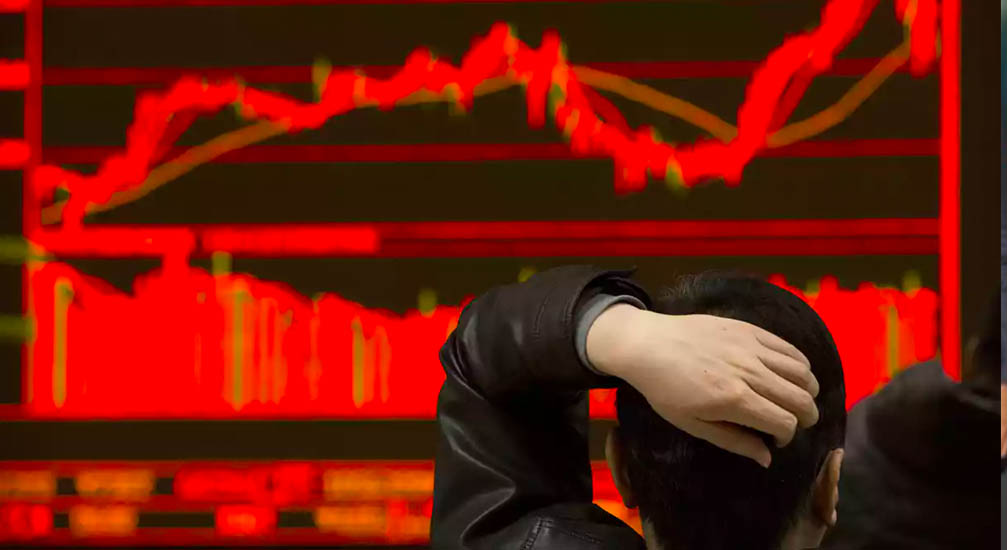Major Asian markets suffered sharp losses on Friday, following another day of steep falls on Wall Street.
In a volatile week for global investors, Japan's Nikkei 225 index slid 2.3%, while China's Shanghai Composite slumped by 4.1%.
Earlier, the Dow Jones Industrial Average fell by more than 1,000 points for the second time this week.
Sell-offs around the world have been pinned partly on concerns over higher interest rates.
Elsewhere in Asia on Friday, Hong Kong's Hang Seng dropped 3.1%, while South Korea's Kospi index traded down 1.8% and Australia's S&P/ASX 200 eased 0.9%.
Those losses came as little surprise, with moves in major US markets providing the cue for global investors.
On Thursday, the Dow Jones ended 4.2% lower at 23,860, the S&P 500 closed down 3.8%, while the Nasdaq sank 3.9%. European exchanges also headed south on Thursday.
The BBC reports that China was the worst performer in Asia on Friday as losses deepened from declines seen earlier this week.
Chinese stock markets tend to be volatile and are dominated by retail investors, rather than big institutions like many other major markets.
But falls in China can spark nervousness around the world over sentiment in the world's second largest economy.
As well as the broader sell-off, analysts said stocks in China were weighed down by people selling ahead of the Lunar New Year holiday.
This is a common trend as the need for cash grows during this period - a time when Chinese companies typically pay bonuses and people also traditionally exchange cash and gifts during the period.
This global sell-off began last week after a solid US jobs report fuelled expectations that the Federal Reserve would need to raise interest rates faster than expected because of the strength of the economy.
That concern has prompted the pull-back from stocks.






















